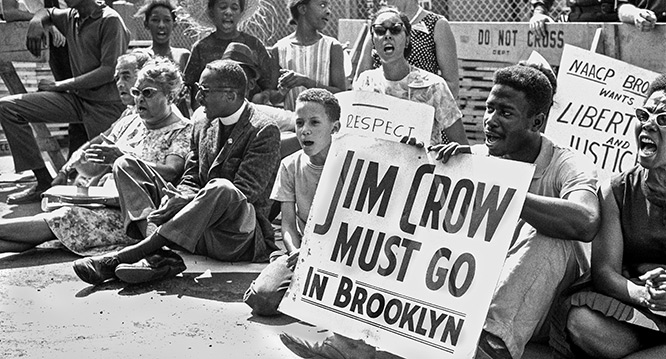In July 1963, “Jim Crow Must Go In Brooklyn!” became the rallying cry of scores of men, women, and children resisting segregation. That summer the civil rights movement was challenging the political establishment from Capitol Hill to the Mississippi Delta. The northern civil rights struggle, however, focused not on legal reform, but economic justice.
The powerful building-trades unions were constructing the State University of New York’s Downstate Hospital facility in the heart of black Brooklyn—with almost exclusively white workers. Qualified but jobless black workers organized with the Congress of Racial Equality and local clergy to call for anti-discrimination employment rules. Their demand for inclusion reflected the paradox of race relations in this deceptively diverse, left-leaning city. Over several weeks, the campaign brought thousands into the streets. But despite some overtures toward reform by politicians, the protests failed to force local authorities or unions to confront the city’s ingrained institutional racism.
Today unions are far more integrated than in 1963; black and Latinx workers are the most highly unionized segment of the city’s labor force, and one in five New York City immigrant workers are unionized (about twice the nationwide rate). Yet divides of race, immigration status, and gender still shape the wildly unequal economic landscape. Even though today’s union contracts help offset these disparities, labor has not overcome the city’s pernicious racial gaps. On the street and on the job, Jim Crow still casts long shadows over Brooklyn.
Michelle Chen is a contributing editor to Dissent and co-host of its Belabored podcast. She was on the advisory panel for City of Workers, City of Struggle, a new exhibition at the Museum of the City of New York, which features images from the protest.







